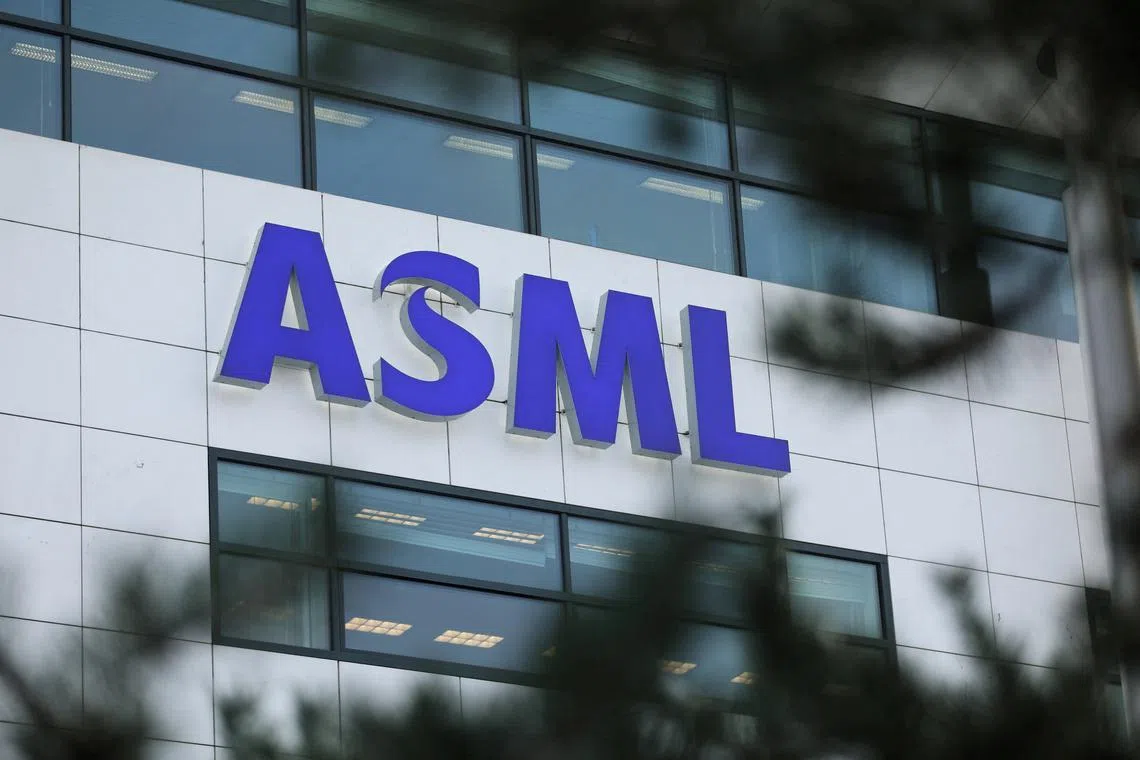China courts South Korea, as US effort to tighten chip exports gains steam
Sign up now: Get ST's newsletters delivered to your inbox

Dutch lithography specialist ASML Holding NV is one of the two critical players needed to make the sanctions effective.
PHOTO: REUTERS
Follow topic:
BEIJING – China has said it is ready to build better ties with South Korea, courting a key US ally and microchip producer amid Washington’s campaign to curb Chinese access
In a readout released on Tuesday, China’s Foreign Minister Wang Yi told his South Korean counterpart Park Jin that China is “willing to work with South Korea to adhere to the general direction of good neighbourliness and friendship”, while also strengthening “strategic communication”.
He said China and South Korea should “ensure safe and smooth production and supply chains, maintain the international free trade system, and strengthen cooperation on regional and global issues”.
While the Chinese readout did not mention a semiconductor partnership with South Korea, Mr Wang criticised both the US Chips and Science Act the Inflation Reduction Act.
The two laws hurt both China and South Korea, Mr Wang said, describing the United States as “saboteurs rather than builders” of international rules.
The remarks hint at Chinese worries about US President Joe Biden’s campaign to curb China’s tech ambitions and prevent Beijing’s military from obtaining advanced semiconductors.
Japan and the Netherlands have agreed in principle to join the US in tightening controls
The three-country alliance would represent a near-total blockade of China’s ability to buy the equipment necessary to make leading-edge chips.
The US has also been pressuring South Korea to comply with the export controls.
South Korea has increasingly been caught between its top security ally and biggest trading partner as competition intensifies between the world’s largest economies.
South Korean Trade Minister Ahn Duk-geun said in October that key chip producers Samsung Electronics and SK Hynix won approval from the US to keep operating in China, but that concerns remained over the impact of the sweeping restrictions.
The US rules restrict the supply from US gear suppliers Applied Materials, Lam Research and KLA.
Japan’s Tokyo Electron and Dutch lithography specialist ASML Holding are the two other critical suppliers that the US needs to make the sanctions effective, making their governments’ adoption of the export curbs a significant milestone.
“There’s no way China can build a leading-edge industry on its own. No chance,” said Sanford C. Bernstein analyst Stacy Rasgon.
With the move, Dutch and Japanese officials will essentially codify and expand their existing export control measures to further restrict China’s access to cutting-edge chip technologies.
The two governments are planning to impose a ban on the sale of machinery capable of fabricating 14-nanometre or more advanced chips to China.
The measures align with some rules Washington set out in October. The 14nm technology is at least three generations behind the latest advances available on the market, but it is already the second-best technology that China’s chipmaking champion Semiconductor Manufacturing International Corp owns.
On Monday, China filed a dispute over the US export controls
It added that the US curbs “threatened the stability of the global industrial supply chains”. BLOOMBERG

